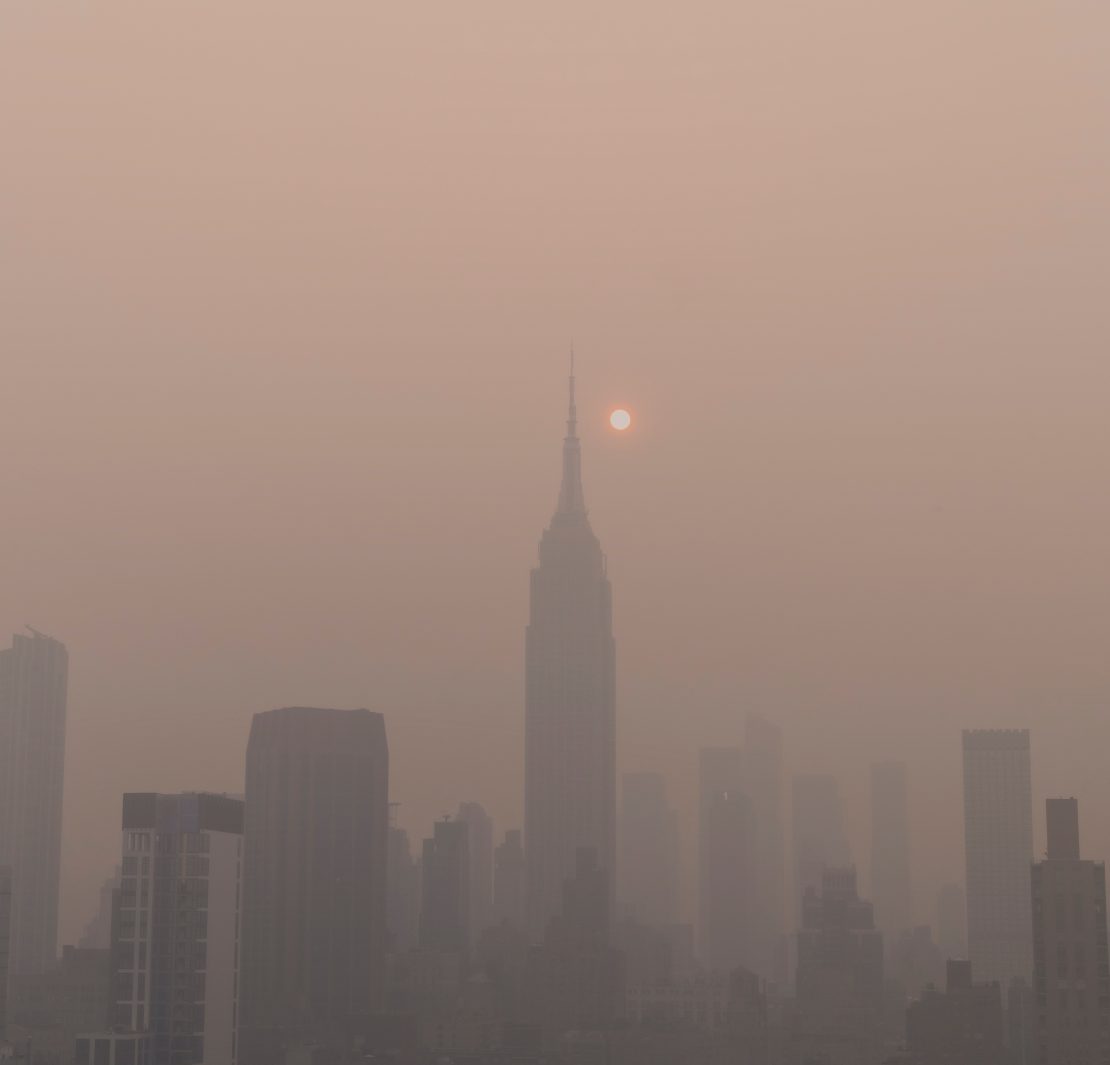New York City has turned into yet another living hazard. Wildfires have engulfed Canada, the smoke from which has made its way to the US East Coast cities – trapping millions in deteriorating air quality.
The great white north is on track to experience its worst wildfire season yet with more than 400 active wildfires currently burning across nearly all Canadian provinces and territories. Federal officials said last week that wildfires have burned more than 6.7 million acres and about 26,000 people are under evacuation orders. The U.S. National Weather Service in a forecast is expecting the smoke to linger through Wednesday and continue to travel further west, issuing air quality alerts for virtually the entire Atlantic seaboard. According to Reuters, health officials from Vermont to South Carolina and as far west as Ohio and Kansas warned residents not to spend much time outside due to the extreme levels of fine particulates in the atmosphere which could cause respiratory issues.
On Wednesday, New York City reached an AQI of 342, ranked the worst of any city in the world. Orange haze has covered the city, prompting some residents to wear face masks outdoors. Life in the city that never sleeps is coming to a pause – with flights to the La Guardia airport halted, Broadway shows and games postponed and people advised to stay indoors.
Tonight’s performance of Hamilton will not go on as scheduled. The hazardous air quality in New York City has made it impossible for a number of our artists to perform this evening. Shows will resume as scheduled tomorrow. We apologize for the inconvenience and encourage you to…
— Hamilton (@HamiltonMusical) June 8, 2023
New York Governor Kathy Hochul called the situation an “emergency crisis,” saying the air pollution index for parts of her state was eight times above normal.
Wildfires were a rare but expected occurrence for those in the Americas just a few years ago – but climate change has amplified the frequency and intensity of global wildfires and air pollution from wildfire smoke is growing worse. Last year, Stanford researchers found that millions of Americans are routinely exposed to wildfire smoke pollution at levels rarely seen only a decade ago. But experts and officials think the worst is yet to come. According to many, Canada’s ongoing wildfire season is a forewarning of our climate future. It’s part of a trend experts say will intensify as climate change makes hotter, drier weather and longer fire seasons more common. By 2090, global wildfires are expected to increase in intensity by up to 57% thanks to climate change, a United Nations report warned last year.
In India, forest fires are almost unheard of but they do happen. An analysis by FSI in 2019 showed that nearly 36 per cent of India’s forests are prone to fires, and nearly one-third of those are highly vulnerable. Earlier in March, forest fires shrouded Goa, impacting an area of about 4 sq km. Investigations concluded that the fires were largely triggered by natural causes, confirming the central government’s submission to Parliament that a “prolonged dry spell, unprecedented high temperatures, and low humidity” caused “sporadic” fire incidents in the state. Opposition parties and environmentalists alleged the fires were “man-made”, deliberately lit by vested interests. Even the state Forest Minister, Vishwajit Rane, had said in March that the fires were “man-made”, completely dismissing the discourse around climate change.
Despite constant reminders, the general masses in India are ignorant about climate change. Moreover, a 2021 study revealed that 40% of Indians are expected to have reduced life expectancy thanks to increasing air pollution. Indian cities, especially New Delhi, have topped the charts when it comes to air pollution and currently, Kolkata is number 4 on the list of worst polluted cities with an AQI of 152.
That said, the Indian government has developed its policy response through missions and programmes to reduce its climate vulnerability. Under India’s G20 presidency, the Environment and Climate Sustainability Group (ECSWG) aims to enhance cooperation among the G20 nations to develop state-of-the-art solutions for the sustainable management of oceans and marine biodiversity conservation. According to many experts, India holds the key to meeting global climate change goals.




